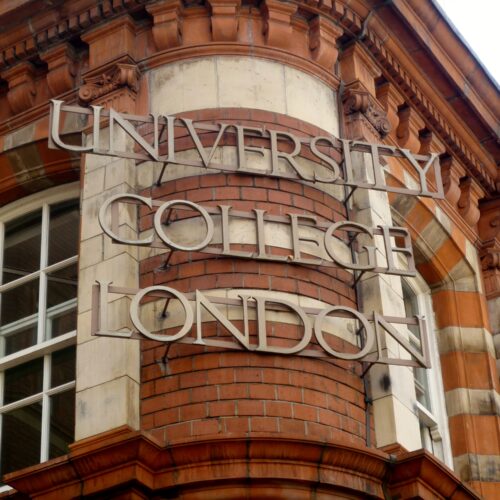

University College London was founded in 1826 as the University of London; the city’s first university, and a consciously secular alternative to Oxford and Cambridge. Known as the ‘godless college’ of Gower Street, the university was open to students of all faiths and none and, in 1878, became the first university to enrol women on the same terms as men.
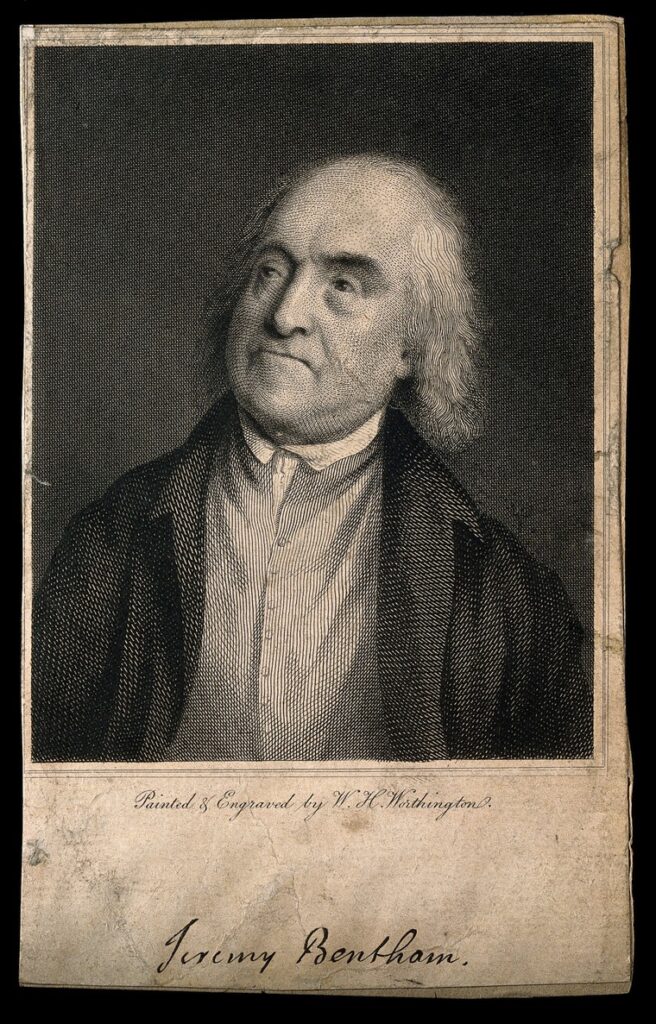
Many notable humanists have been staff or students at UCL, including scientist Francis Crick, philosopher A. J. Ayer, and mathematician Sophie Bryant. The auto-icon of UCL’s ‘spiritual founder’, Utilitarian and reformer Jeremy Bentham, can be seen in the university’s Student Centre, open to visitors 7am – 7pm every day. This famous relic is Bentham’s skeleton, dressed in his clothes, with a wax head. It has been posited that he chose to have his body preserved in this way ‘as an attempt to question religious sensibilities about life and death’.
Philosopher and jurist Jeremy Bentham (1748-1832) is most associated with the theory of utilitarianism: that the right course of action is one which produces ‘the greatest happiness of the greatest number’. He was a passionate social reformer, advocating for legal and prison reform, as well as for universal suffrage and the decriminalisation of homosexuality. Bentham argued for religious freedom, and believed in the complete separation of church and state. Although he played no active part in bringing the University of London into being (he was 80 years old when it opened), he was a significant influence on its founders, and on the principles by which they worked.
The University of London was also home, in September 1908, to the First International Moral Education Congress, initiated by figures within the International Union of Ethical Societies (founded in 1896). These included the German academic and pacifist Friedrich Wilhelm Foerster and Budapest born printer and lecturer Gustav Spiller. From the earliest days of the ethical societies’ existence, the education of children was a central concern. The Moral Instruction League (formed in 1897) promoted non-theological moral education in schools, and the Congress of 1908 brought speakers and attendees from at least 18 different countries to discuss ideas and practice.
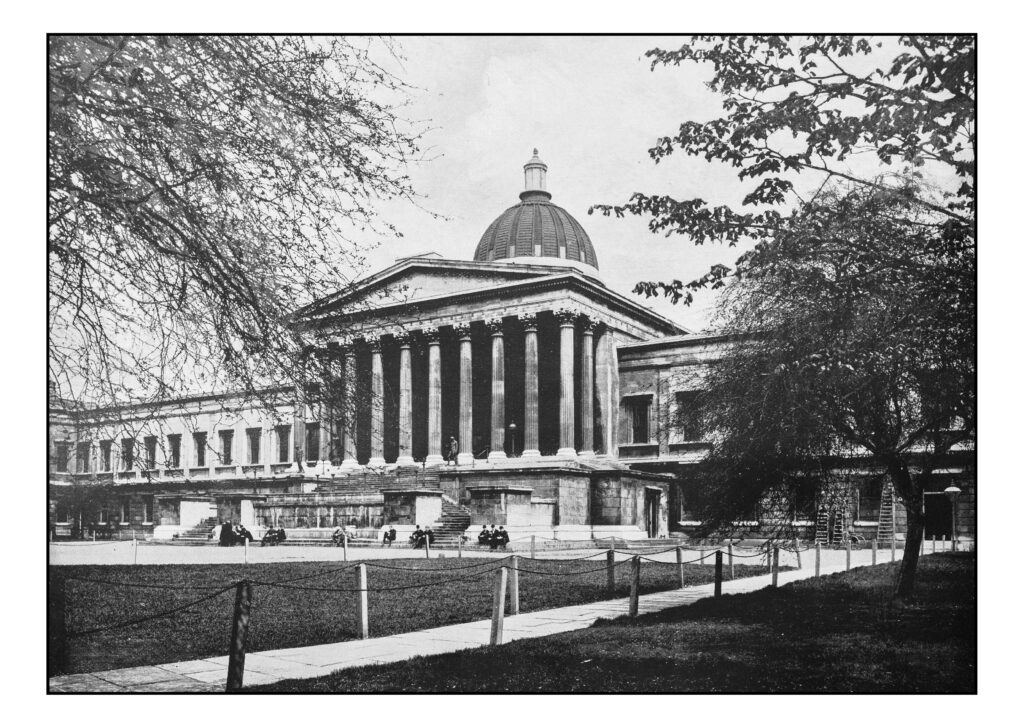
Bloomsbury’s Gower Street is also home plaques commemorating Charles Darwin, and the Italian revolutionary Giuseppe Mazzini (1805-1872). During his time in London, Mazzini became friends with many notable radicals and freethinkers. In 1849, in a secular naming ceremony, George Jacob Holyoake bestowed the name ‘Mazzini’ on the infant son of publisher Edward Truelove, hoping that ‘its great example might be the study and the star of the rising child’. Non-religious namings like this one were early precursors of humanist ceremonies today.
The creation of UCL had a profound impact on education in the capital and the UK as a whole. Much as UCL was founded as a secular and egalitarian response to religious admissions rules at Oxford and Cambridge, it in turn inspired a religious backlash. Concerned by the ‘godless’ university’s considerable academic output, burgeoning reputation, and strong association with humanist and progressive causes, figures from the religious establishment created King’s College London in 1829 to offer an Anglican university of similar calibre in the capital.
When UCL applied for degree-awarding powers in 1830, its application was rejected; instead, the federal University of London (UoL) was created in 1836 to give degrees to students of both UCL and King’s. By 2021, UoL had grown to 20 members, cementing London’s place as both an academic powerhouse and a popular destination for big businesses. UCL’s influence was also seen in the University Tests Act of 1871, which made religious tests for admissions at Oxford, Cambridge, and Durham unlawful and so guaranteed secular admissions to all the top universities.
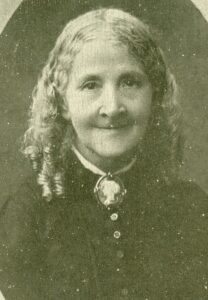
… purely human and natural ethics, and not theology, was the source of this pioneer woman’s enthusiasm for justice, even […]
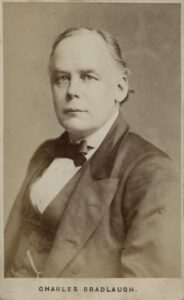
Charles Bradlaugh was a leading freethinker, secularist, and founder of the National Secular Society. His efforts to take his seat […]
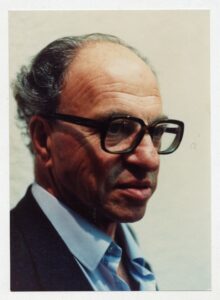
It is in service to others, it is as members of the community, that our existence lies. Hermann Bondi, Humanism […]
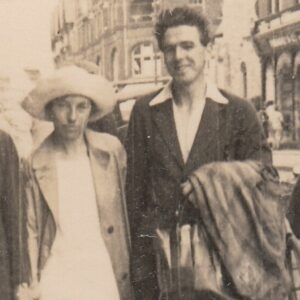
We must grow out of the crude and unreal ideas of immortality and content ourselves with the only kind of […]